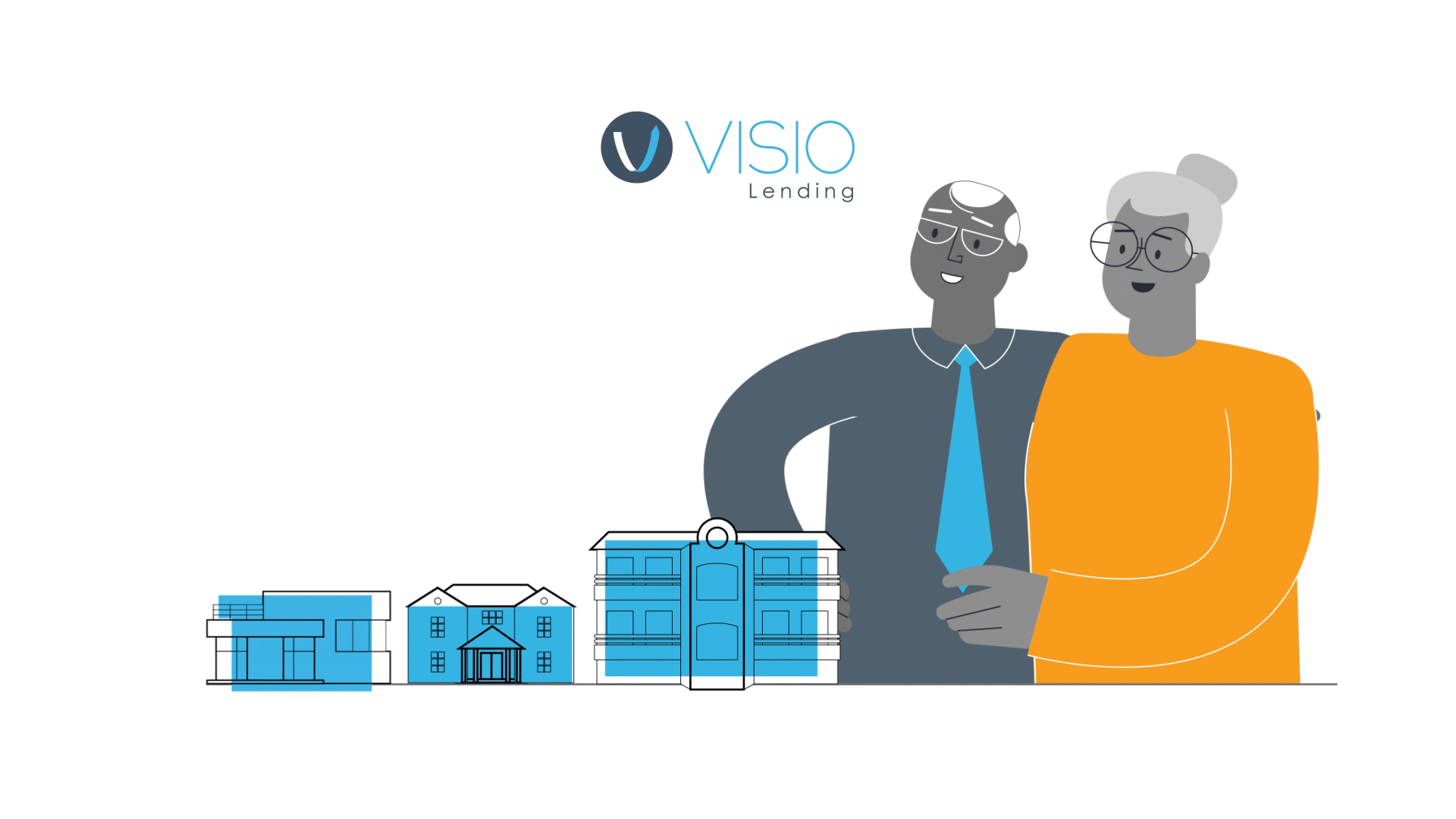The Leading DSCR Lender for Real Estate Investors
Since 2012, Visio Lending has been proud to help real estate investors nationwide secure the financing they need to grow their portfolios. Our reliable, investor-friendly DSCR loan solutions make the lending process simple, efficient and tailored to your investment goals.



About Us
Trusted by Investors Nationwide Since 2012
As a leading provider of DSCR loans, Visio has helped thousands of real estate investors secure financing based on their property's income potential. Whether you're buying your first rental property or scaling your portfolio, we're here to make the process fast, easy and simple.
OUR DSCR LOAN PROGRAMS
At Visio, we specialize in DSCR Loans, an alternative financing solution that doesn’t verify personal income. If your prospective rental property can generate a monthly profit, we can provide the funding you need to purchase.
6 - 12 Months
Long-Term Rentals
Long-term rental loans for buy-and-hold investors who rent their properties out on a 6-12 month basis.


One Night - Several Weeks
SHORT-TERM RENTALS
A short-term rental is a residential property rented for periods ranging from one night to several weeks. This includes listings on platforms like Airbnb and Vrbo, as well as rentals managed independently.


Where We Lend
Click on a state
*Entity required in: GA, HI, IL, MA, NJ, NY, PA and VA
**Zero PPP required in: NM, KS, OH, MD, PA and RI
Expert Lending. Efficient Process. Proven Results.
OUR LENDING PROCESS
At Visio, we've created the simplest, most streamlined and investor-friendly loan process. From the initial application to closing, we provide fast turnaround times and dedicated support from our loan experts. With years of experience and billions financed, we have the expertise and dependability to close loans with speed and certainty.
Our Account Executives
We know that every real estate investor has a unique vision, and our team of expert loan officers is here to help you bring yours to life. Specializing in DSCR loans for investment properties, our loan officers are not just mortgage professionals; they are dedicated partners in your financial success.
Tri, a University of Texas graduate, brings a strong real estate background to Visio Lending, specializing in investment properties like acquisitions and fix-and-flips.
Jay is a Texas A&M University Mays School of Business Graduate. He brings to Visio decades of real estate and sales experience.
Tracy has 8 years mortgage sales and management experience. He also owns his own growing portfolio of rentals across the country.
Sergio brings over a decade of sales experience to Visio and has worked in the mortgage industry since 2016. A Los Angeles native, he served 8 years in the military before transitioning to sales.
Ryan Huddleston brings over 10 years of lending and financial services experience to his role as Account Executive at Visio Lending. Based in Austin, he’s a committed partner, known for his innovative approach and active involvement in real estate investing.
Jose brings over 15 years of mortgage industry experience and is an active real estate investor, with expertise ranging from short-term vacation rentals to commercial properties.
Visio Resources



Testimonials
This review is for Sergio Leyva, a senior account executive at Visio. Sergio told me from day one that he'd bring my DSCR cash out refi of a multifamily investment property (acquired under land contract initially) to close, despite other lenders being unable to deliver on this one previously. And in spite of a great many hurdles that arose, he was a man of his word and got it done.
Segio remained relentless in seeing it through and communicated with me every step of the way, always with a positive attitude.
He went to war to make it happen -- if not for him, I dont think it would've come to fruition.
I highly recommend working with him because he understands the needs and concerns of investors, brings a wealth of industry experience to the table and most of all goes to bat for his clients. He is honest and direct and a pleasure to work with.
Lisa Donovan was my other point of contact for keeping all the documents moving and in order -- Lisa was on the ball and always super cheerful and helpful.
Winter Creek
David Chen
Jen Weston
Rob Thornton
I was introduced to Visio Lending by Brad Cullipher at American Capital Home Loans and ended up working with Freddy Colon on a DSCR loan for a rural property in Wimberley, Texas. Freddy was fantastic to work with — super helpful, quick to respond, and made the whole process incredibly smooth. I honestly couldn’t recommend him more.
This was hands down the best experience I’ve ever had with a lender. DSCR loans can sometimes be a bit tricky, but Visio Lending made it easy from start to finish. Freddy and his team handled everything so efficiently, and the entire process was straightforward and stress-free.
I was really impressed with the whole Visio Lending crew. If you’re in the market for financing — especially a DSCR loan — I highly recommend giving Freddy Colon a call. I’ll definitely be working with them again in the future.
Todd Nasca
Meredith Ries
Jaisheel Prakash
Visio Lending is the Best for DSCR Loans!
When it comes to DSCR loans, Visio Lending is simply the best. I’ve had the privilege of working closely with Tracy, who is an outstanding loan officer. Tracy’s combination of excellent rates, unmatched service, and unwavering attentiveness makes every transaction a smooth and successful experience.
Also thank you to Tracy’s assistant, Melissa, who ensures every detail is handled with care and efficiency. Together, they create a powerhouse team that consistently exceeds expectations.
I absolutely love working with Visio Lending and highly recommend them to anyone in need of a lender that prioritizes client success. They truly stand out in the industry!
Jordan
Visio Lending has been an outstanding partner for our rental business. Their expertise in DSCR programs and market-leading rates make them a top choice. On top of that, their team is incredibly motivated and supportive. Sergio Leyva, in particular, went above and beyond, working tirelessly to secure the best rates for us and even assisting with external participants. We've successfully completed two deals with Visio Lending so far and look forward to many more in the future. Thank you, Visio team!
Gautam Tulsian















